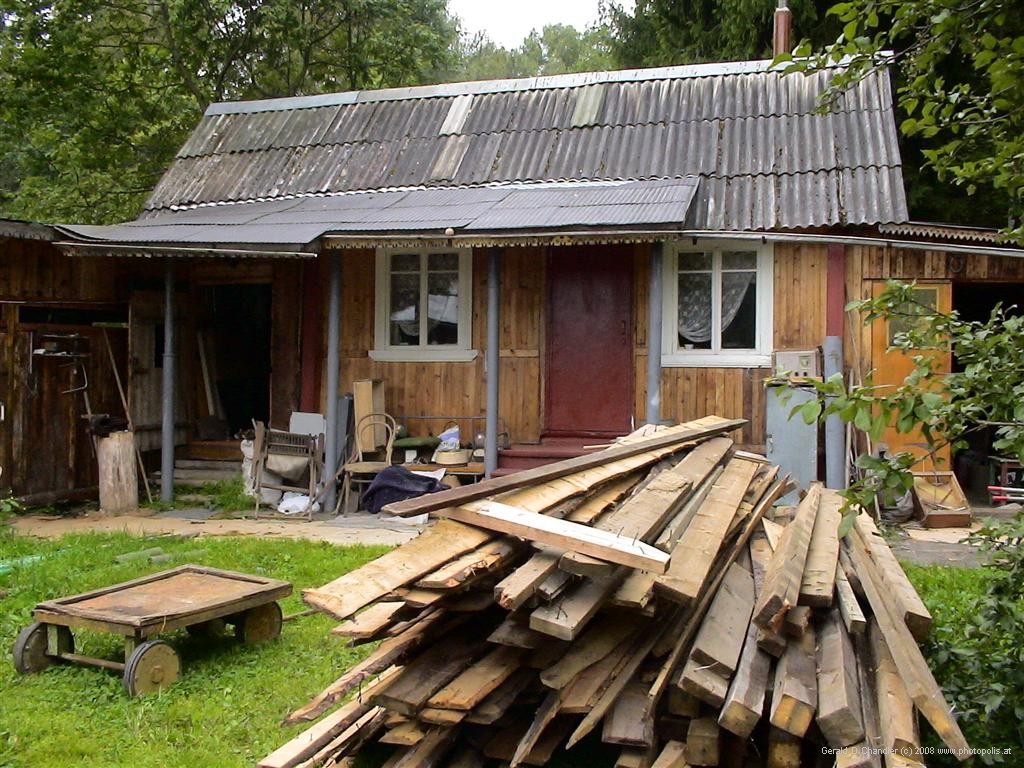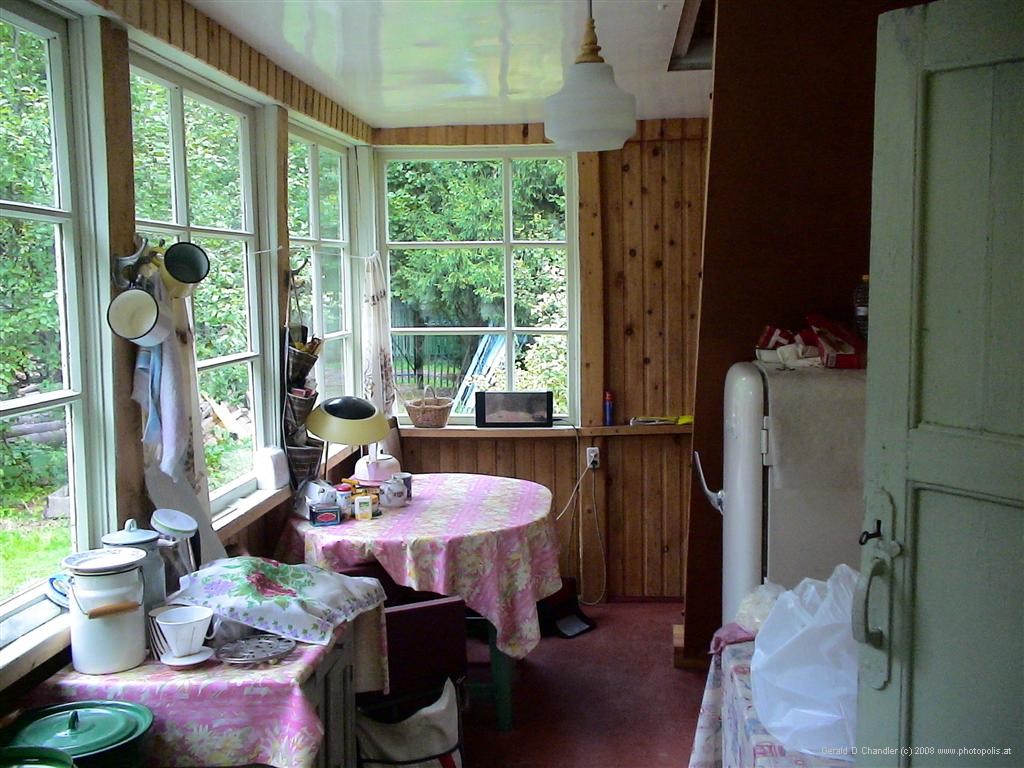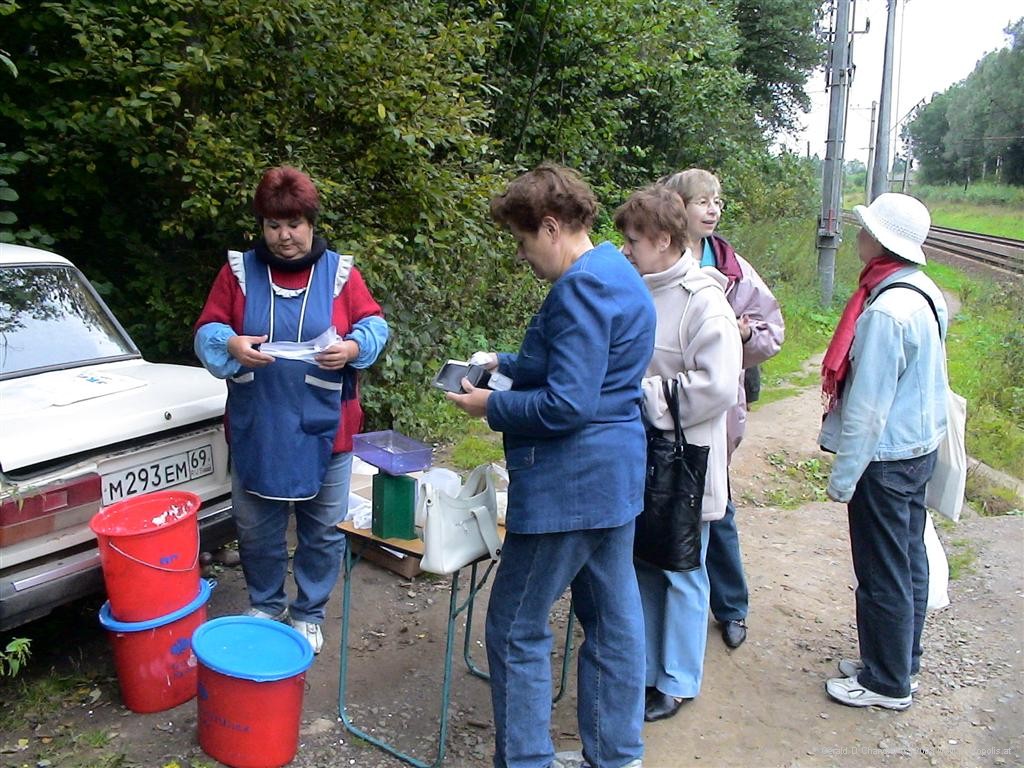Home | Front Page | Index | Blog | New | Contact | Site Map
Arrival
Registering
First Steps
Kremlin
Dom Museums
Grand Museums
Statues
Churches
Monasteries
Metro
Markets
Radonezh Dacha
Maps
Foto Show
Other Russia
Russia
Golden Ring
St Petersburg

Travel 2005
Berlin
Paris
Moscow
Russia
Athens
Travel 2004
Mexico 2004
Belize
Guatemala
Honduras
Costa Rica
Panama
Colombia
Ecuador
If you know anything about Russia, you know that the Dacha is a big part of the Russian lifestyle and even the Russian psyche. Roughly translated it means "country house". Most Russians either own all or part of a dacha or, failing ownership, rent a part or all of a dacha for part or all of the summer.

Radonezh Dacha |
In Soviet days the right to use a dacha was usually a perquisite of the job. The Chairman of the Communist Party had a magnificent one. But teachers and other intellectuals also were given access to them, as were workers of all stripes. When the Soviet system fell apart, the dachas gradually became privately owned a transition that most probably became a rather corrupting process.

Radonezh Dacha |
In Soviet days, Dachas, for the most part, were not luxurious affairs, except for the party bigwigs. They almost certainly didn't have running water, or sewers and probably little or no electricity. Water was drawn from a well, sewerage went into a cesspit, and light came from a kerosene lamp. Heat wasn't needed because of course all but the most luxurious dachas were used only in the summer months.

Radonezh Dacha |
During our stay in Moscow, we were fortunate enough to be invited to spend a day with a friend at the dacha that she rents for the summer. The main house set on about an acre of land is owned by a father and son and their families, boasts a fruit orchard, a vegetable garden, and a flower garden. Water is carried from the well then placed in a container that has a neat little device that dispenses the water without ever allowing it to go to waste. Rather than turning a tap, you have to lift a rod. While the rod is lifted, water can escape but as soon as you remove support from the rod, it drops into place and seals the container. Primitive but effective.
Olga's dacha was in the town of Radonezh, not far from the stately home of Abramtsevo, famous in Soviet days for being the home of a group of young artists. We visited the estate and got a sense of what life was like for the intellectual elite. They had much more space and bigger and better buildings than the dacha that we were visiting, but they had nothing more in the way of real comforts.
On the walk we took from Radonezh to Abramtsevo, we got a look at how the dacha world is changing. More and more of the houses now have electricity, and more are being updated to include more and more modern conveniences. New houses look for all the world as if they could be in Middletown, New Jersey, or upstate New York. Because the government safety net for the elderly is grossly insufficient, elderly parents are often housed in dachas for the summer months to tend potato and cabbage patches and harvest the fruit trees that invariably surround the house. The children who work in the city, come out to the country for the weekend and take back with them the produce of the week, reducing household expenses, and who knows perhaps serving as barter goods.